Comprehensive Guide to Garden Maintenance in Beaumaris
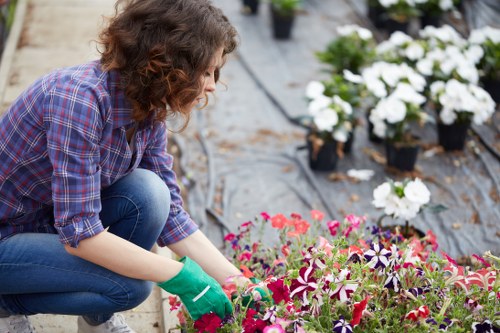
Introduction to Garden Maintenance
Maintaining a beautiful garden in Beaumaris requires regular care and attention. Whether you are a seasoned gardener or a beginner, understanding the basics of garden maintenance can help ensure your outdoor space remains lush and vibrant throughout the year.
Beaumaris, known for its stunning coastal views and rich gardening tradition, offers unique challenges and opportunities for garden enthusiasts. From the mild climate to the diverse range of plants that thrive in the area, proper maintenance is key to achieving a thriving garden.
In this guide, we will explore the essential aspects of garden maintenance in Beaumaris, including seasonal tasks, plant selection, soil care, and pest management. By following these tips, you can create a garden that not only looks great but also contributes to the local ecosystem.
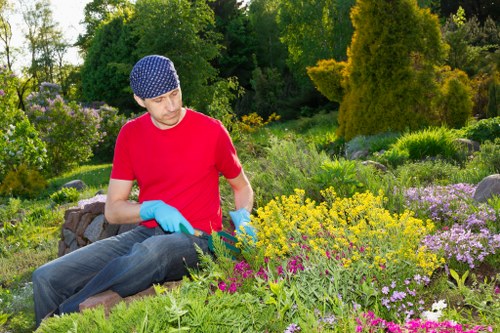
Seasonal Garden Maintenance
Spring Care
Spring is a critical time for garden maintenance in Beaumaris. As the weather warms up, it's essential to prepare your garden for the growing season. Start by clearing any debris left from the winter months and pruning dead or damaged branches.
Planting new flowers and vegetables during spring can set the tone for a productive summer. Consider native plants that are well-suited to the local climate, as they will require less water and care.
- Weeding: Remove any weeds that have sprouted to reduce competition for nutrients.
- Soil Preparation: Amend the soil with compost or organic matter to enhance fertility.
- Mulching: Apply a layer of mulch to retain moisture and suppress weed growth.
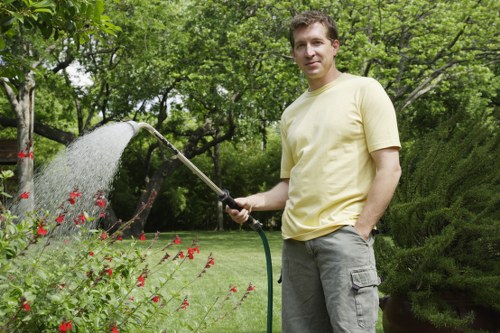
Summer Maintenance Tips
Watering Strategies
During the hot summer months, maintaining adequate moisture levels in your garden is crucial. Implement efficient watering strategies to ensure your plants receive the right amount of water without wasting resources.
Drip irrigation systems are highly recommended for Beaumaris gardens, as they deliver water directly to the plant roots, minimizing evaporation and runoff. Additionally, watering in the early morning or late evening can help reduce water loss due to heat.
Regularly check your garden for signs of drought stress, such as wilting or yellowing leaves, and adjust your watering schedule accordingly.
Pruning and Deadheading
- Pruning: Remove spent flowers and trim overgrown branches to encourage new growth.
- Deadheading: Regularly remove dead or fading blooms to promote continuous flowering.
- Staking: Support tall or heavy plants to prevent breakage and maintain shape.
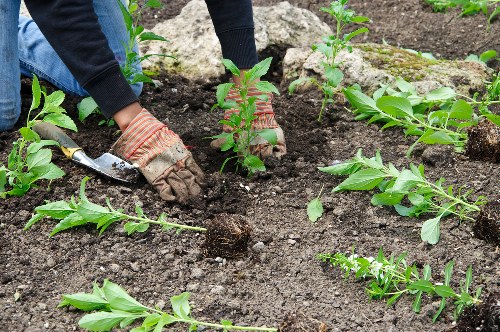
Autumn and Winter Care
Preparing for Cooler Months
As temperatures begin to drop, it's important to prepare your garden for the winter season. This includes protecting sensitive plants from frost and reducing the workload for the colder months.
Start by cleaning up fallen leaves and debris that can harbor pests and diseases. Apply a protective layer of mulch to insulate plant roots and retain soil moisture during freezing temperatures.
Planting for Next Year
- Bulbs: Plant spring-blooming bulbs now to ensure vibrant flowers next season.
- Perennials: Divide and transplant perennials to promote healthy growth.
- Cover Crops: Sow cover crops to improve soil structure and fertility.
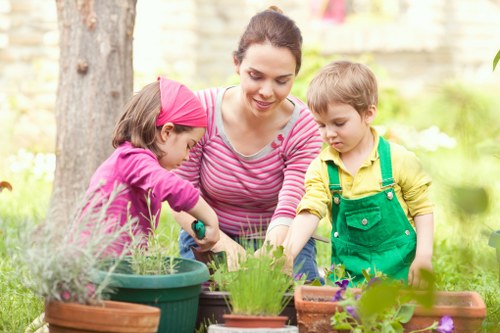
Plant Selection and Soil Care
Choosing the Right Plants
Selecting plants that are well-suited to the Beaumaris climate is essential for low-maintenance gardening. Native plants typically require less water, are more resistant to local pests, and provide habitat for native wildlife.
Consider a mix of evergreen and deciduous plants to ensure year-round interest in your garden. Incorporate a variety of textures and colors to create a visually appealing landscape.
Soil Health
Healthy soil is the foundation of a thriving garden. Regularly test your soil to determine its pH and nutrient levels, and amend it as necessary to support your chosen plants.
- Composting: Create a compost pile to recycle organic waste and enrich your soil.
- Aeration: Aerate compacted soil to improve drainage and root growth.
- Fertilization: Use organic fertilizers to provide essential nutrients without harming beneficial soil organisms.
Local Relevance: Nearby Areas to Beaumaris
Beaumaris is surrounded by several picturesque areas that offer unique features for garden maintenance and landscaping. Here are some of the closest areas:
- Hawarden: Just a few miles away, Hawarden boasts beautiful river views and well-established gardens.
- Path WF: Known for its community gardens and family-friendly parks.
- Picket Piece: Offers a variety of plant nurseries and garden centers.
- Keward: A serene area with private gardens and outdoor spaces.
- North Cornelly: Features spacious lawns and flowerbeds, ideal for expansive gardening projects.
- South Cornelly: Similar to North Cornelly, with additional access to local farming areas.
- Marchwiel: Home to well-maintained botanical gardens and research facilities.
- Marsden: Offers a mix of urban and suburban gardening opportunities.
- Llangwm: Known for its organic gardens and sustainable gardening practices.
- Pentre Ifan: Features historical gardens with unique plant selections.
- Parkgate: A neighboring community with communal green spaces and shared gardening resources.
- Ysbyty Cynfyn: Offers beautiful hillside gardens with panoramic views.
- Bagillt: Known for its vibrant local plant market and gardening workshops.
- Mostyn: Features coastal gardens that benefit from the sea breeze and mild climate.
Effective Pest Management
Identifying Common Pests
Pests can pose a significant threat to your garden's health and productivity. Common pests in Beaumaris include aphids, slugs, snails, and various beetles. Early identification and management are crucial to prevent infestations.
- Aphids: These small insects can damage plants by sucking sap, leading to distorted growth.
- Slugs and Snails: These pests feed on tender plant leaves and can quickly decimate young seedlings.
- Beetles: Certain beetle species may feed on specific plants, causing significant damage.
Natural Pest Control Methods
Implementing natural pest control methods not only protects your plants but also maintains the overall health of your garden ecosystem.
- Beneficial Insects: Introduce ladybugs and lacewings to naturally reduce aphid populations.
- Manual Removal: Regularly inspect your plants and manually remove any visible pests.
- Barriers: Use copper tape or diatomaceous earth to deter slugs and snails.
- Companion Planting: Grow pest-repellent plants alongside susceptible species to naturally deter harmful insects.
Enhancing Garden Aesthetics
Landscaping Ideas
Creating a visually appealing garden involves thoughtful landscaping and design. Consider the following ideas to enhance the beauty and functionality of your garden in Beaumaris.
- Pathways: Install winding paths using natural stone or gravel to guide visitors through your garden.
- Water Features: Add ponds, fountains, or birdbaths to introduce the soothing sounds of water.
- Seating Areas: Create comfortable seating spaces where you can relax and enjoy your garden.
- Lighting: Use garden lighting to highlight key features and extend the usability of your garden into the evening.
Plant Arrangement
Strategically arranging plants can create depth, contrast, and interest in your garden. Consider the following tips:
- Layering: Arrange plants in layers, with taller plants at the back and shorter ones in front.
- Color Coordination: Choose a color scheme that complements your home's exterior and creates visual harmony.
- Texture Variety: Incorporate plants with different leaf shapes, sizes, and textures to add dimension.
Sustainable Gardening Practices
Eco-Friendly Techniques
Adopting sustainable gardening practices helps protect the environment and promotes a healthy garden ecosystem. Here are some eco-friendly techniques to consider:
- Rainwater Harvesting: Collect rainwater to use for irrigating your garden, reducing reliance on potable water.
- Composting: Recycle organic waste to create nutrient-rich compost that improves soil health.
- Organic Fertilizers: Use natural fertilizers to provide essential nutrients without harmful chemicals.
- Integrated Pest Management: Combine biological, cultural, and mechanical methods to manage pests sustainably.
Energy Conservation
Implementing energy-efficient practices in your garden can reduce your carbon footprint and lower utility costs.
- Solar Lighting: Use solar-powered lights to illuminate your garden without increasing energy consumption.
- Efficient Irrigation: Employ drip irrigation and moisture sensors to optimize water usage.
- Native Plants: Choose native species that are adapted to the local climate, requiring less water and maintenance.
Conclusion
Effective garden maintenance in Beaumaris involves a combination of regular care, thoughtful planning, and sustainable practices. By following the tips outlined in this guide, you can create and maintain a beautiful, thriving garden that enhances your home and supports the local ecosystem.
Ready to transform your garden? Contact us today to book your garden maintenance service and enjoy a lush, vibrant outdoor space all year round!
